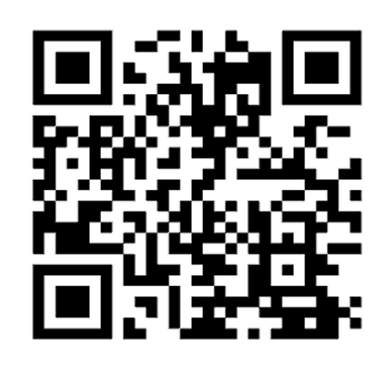Airdrops are broken: we fix the first.
If you’ve spent any time in Web3, you know how it goes: bots flood the system, sybil attackers farm rewards, and real users get left behind.
When Lagrange Labs prepared for their $LA token launch, a big moment for their ZK coprocessor ecosystem, they knew they wanted a better way. No messy spreadsheets full of bots. No blurry CAPTCHAs. No slow, complicated KYC.
That’s why they partnered with Billions Network as their official solution for Proof of Humanity and Uniqueness.
Together, we built a simple, zero-knowledge Proof of Uniqueness that kept the fraud out and made sure real users got the rewards they deserved.
Why Uniqueness Matters
Airdrops aren't just about distribution, they're about distribution with integrity. For Lagrange, this meant rewarding their genuine community, not the smartest bots.
When fake accounts flood an airdrop:
- Value gets diluted
- Governance gets thrown off balance
- Real users feel discouraged
- The token’s reputation suffers
Lagrange needed a way to make sure one person gets one claim, while keeping things private and easy to use.
The Billions Integration: Private, Precise, and Fast
The path to sybil resistance started with Clique, whose secure TEE infrastructure laid the foundation for private, verifiable eligibility checks. Building on this layer, Billions delivered a seamless, mobile-first Proof of Uniqueness flow, enabling Lagrange to detect real users without exposing personal data.
Here’s how the full integration worked:
- Users connected their wallet on Lagrange’s eligibility site
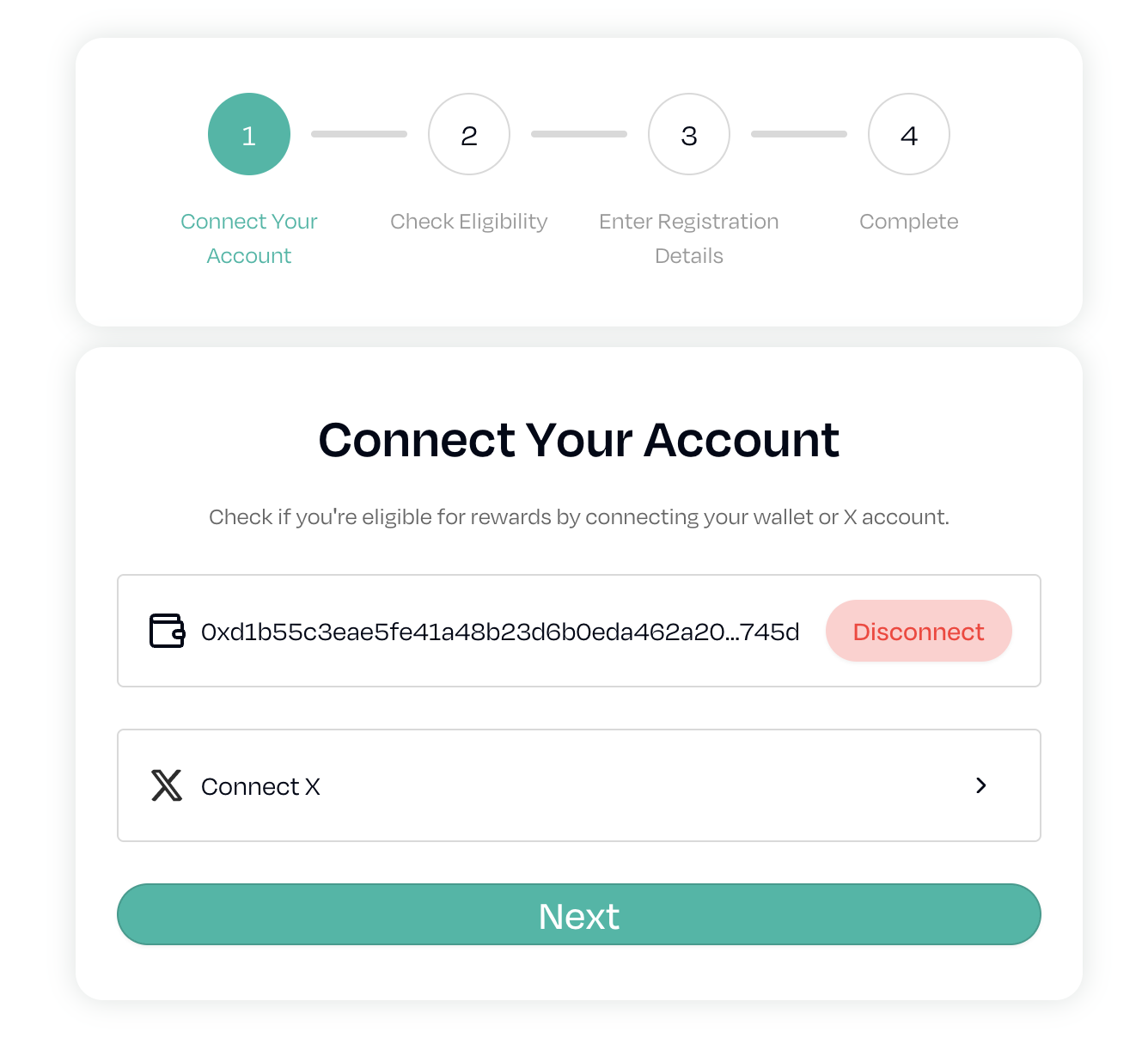
- Eligibility checks excluded sanctioned regions and flagged wallets.
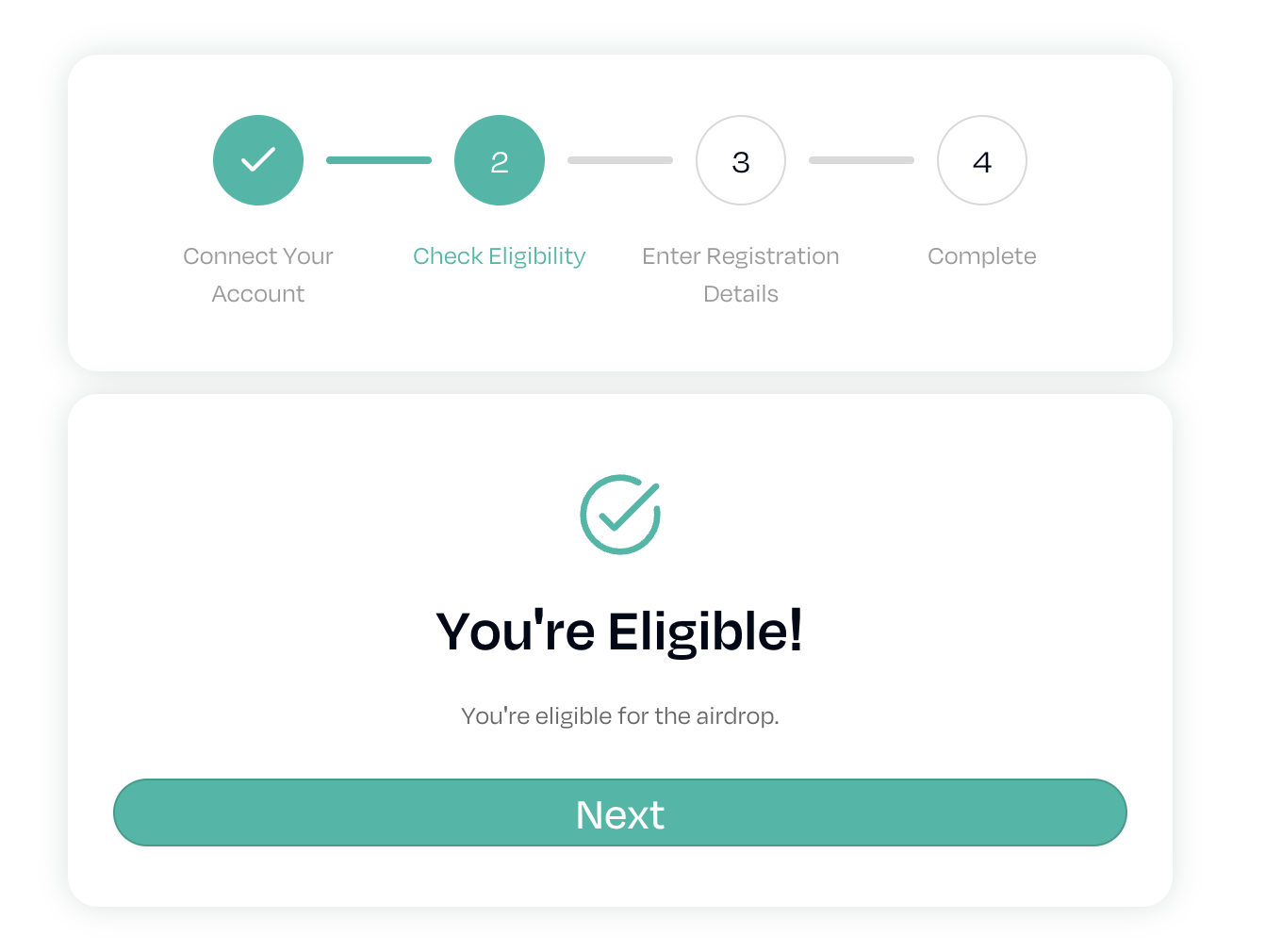
- Provide Registration Details for eligible participants
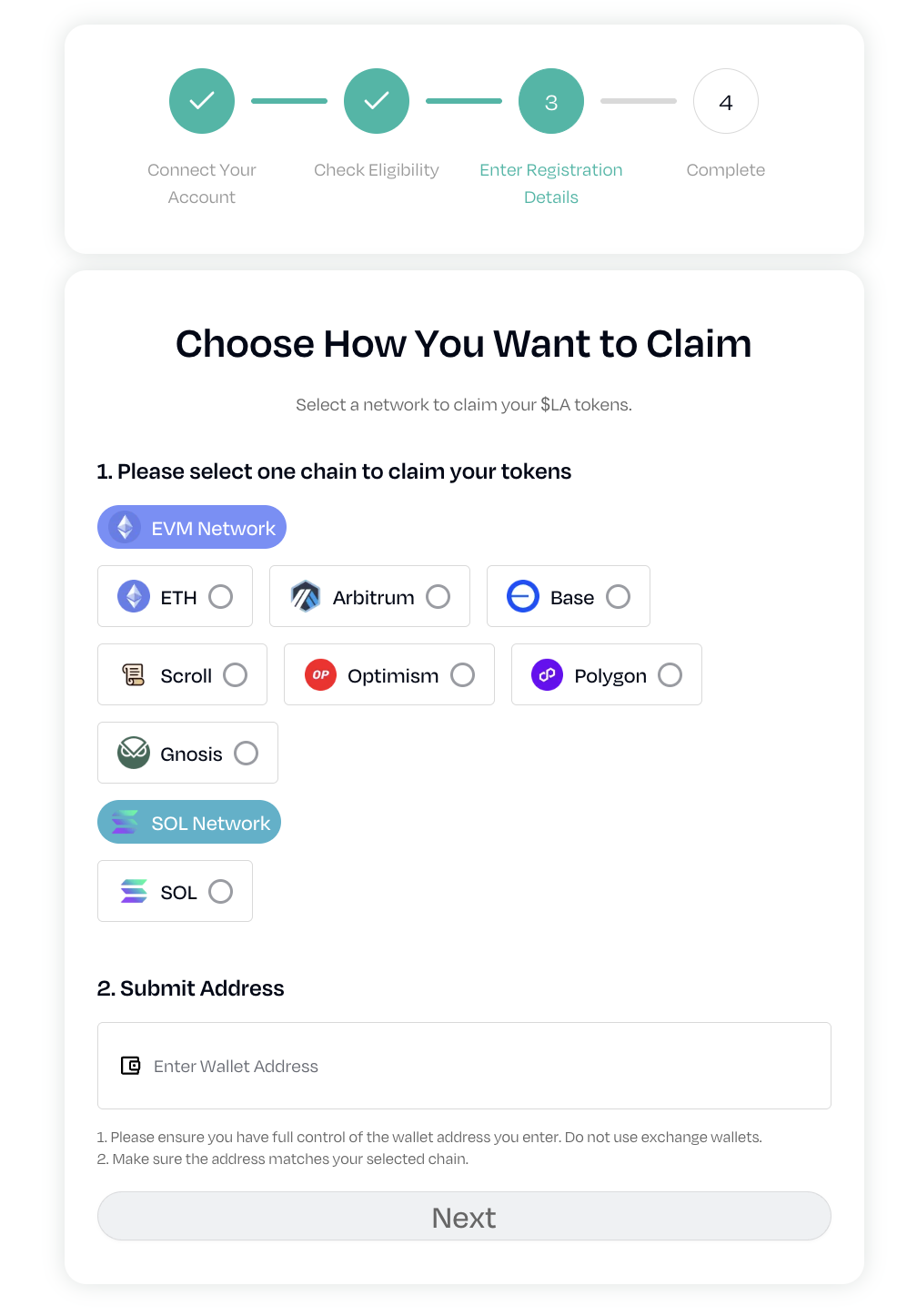
- The Proof of Uniqueness process starts when users click the “Verify Identity” button on the Lagrange portal. This will redirect them to Billions’ embedded Privado Web Wallet, where users can sign in using a EVM wallet
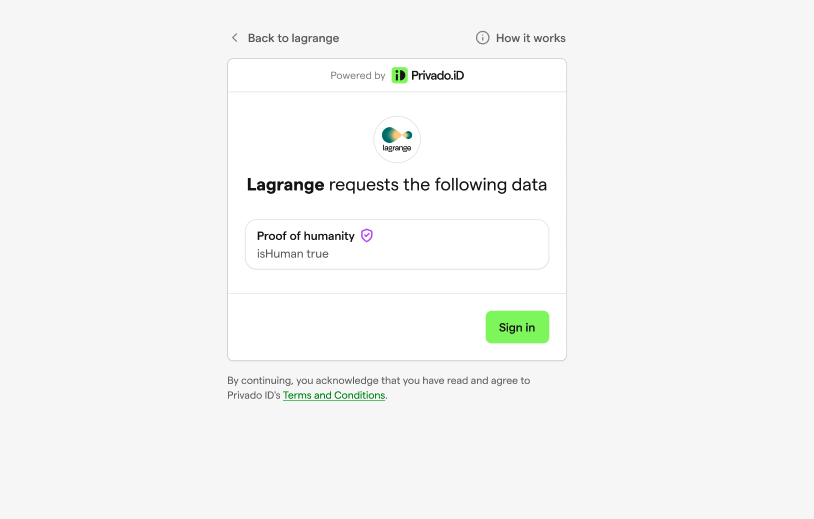
- Users completed a Liveness Face Verification to make sure they are real and unique humans. Fully privacy-preserving (no face data stored).
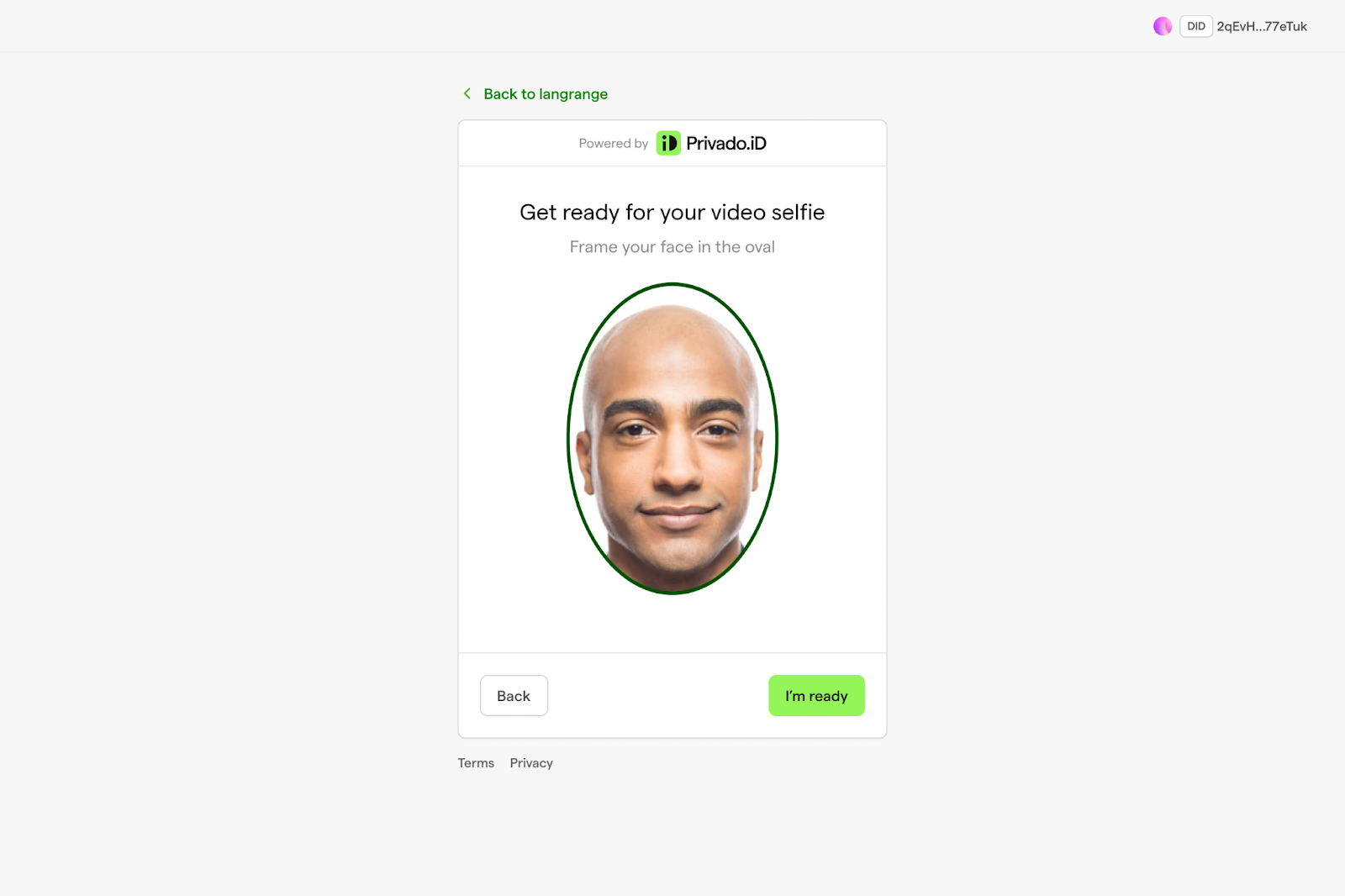
- After completed Face scan, user can verify their PoU(Proof of Uniqueness) credential
- The system generated a ZK proof of uniqueness. If the user was unique, they were approved to claim.
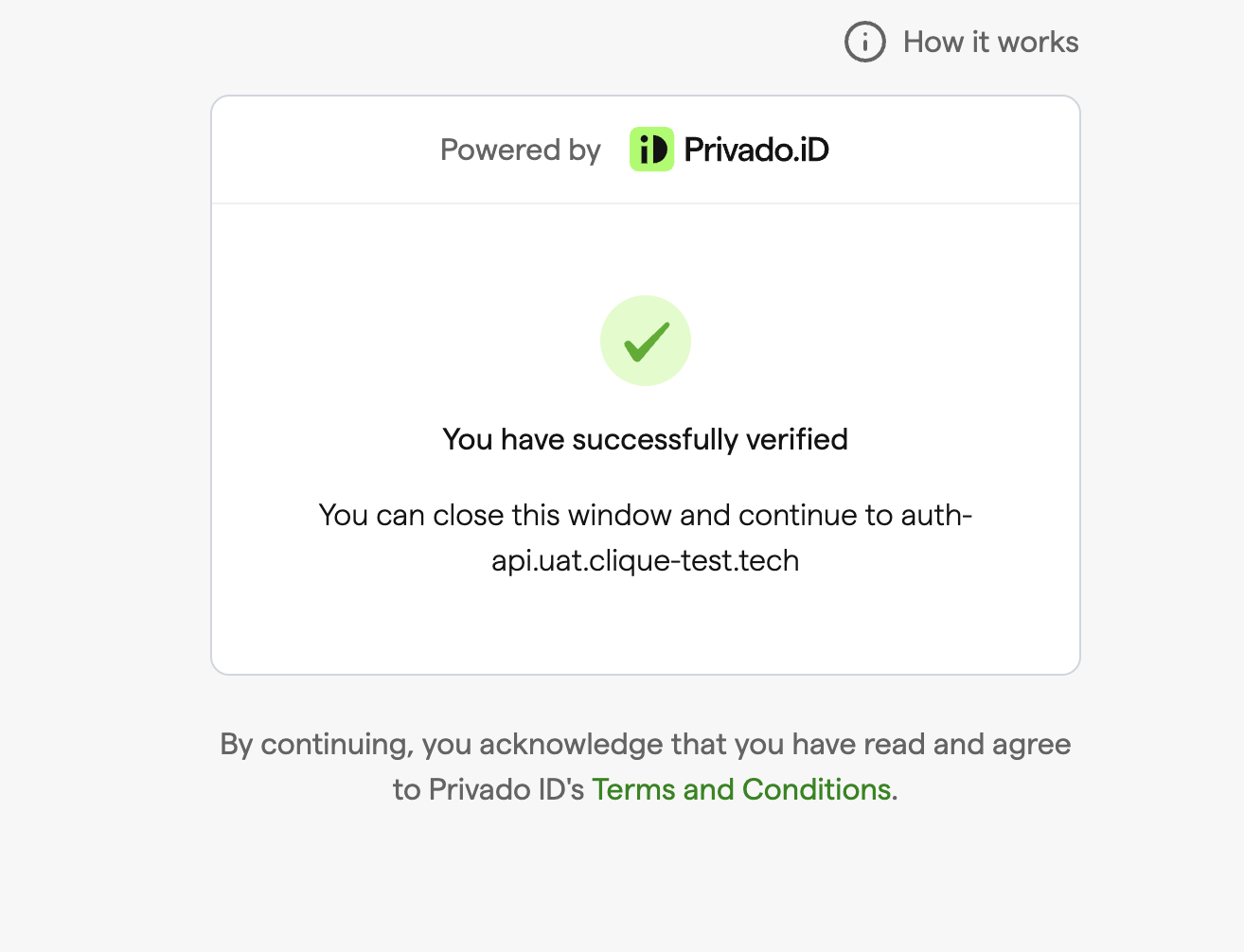
- Return to the Registration Portal after verifying your PoU credential, users had to “Confirm” to complete registration. Only the first verified account per person is eligible for the airdrop.
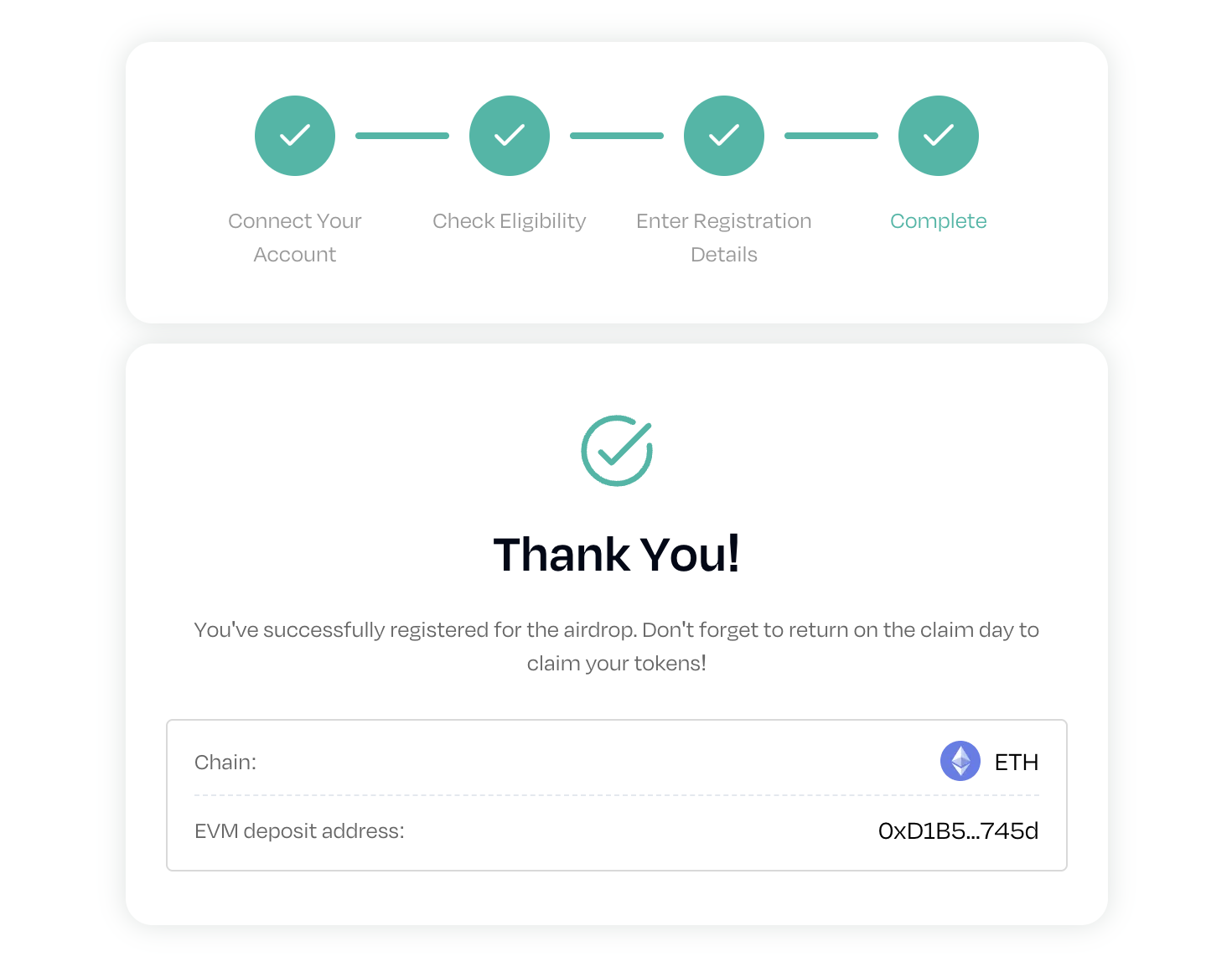
No downloads. No data leaks. Just clean, scalable verification in seconds.
The Outcomes: Securing Treasury Tokens
From a massive wave of token registration attempts, Billions filtered out hundreds of thousands of duplicate or ineligible claims, preserving token value and protecting Lagrange’s treasury from unnecessary dilution.
What remained was a refined and verified community of real, engaged humans. Ready to participate, govern, and build.
Why it worked?
Billions didn’t just offer a tool, we delivered production-grade identity infrastructure. Backed by open standards and zero-knowledge tech, our system is:
- Smart: Detects sybils without invasive data collection.
- Scalable: Works on any phone or device, built mobile-first.
- Private: No biometric data stored, ever.
- Fast: Held strong even during huge spikes in traffic.
- Fair: Rewards go to real humans, not farms.
In short, Lagrange Labs didn’t just protect their airdrop. They set a new standard for Web3.
Looking Ahead: From Airdrops to Ecosystems
Airdrop sybil resistance is just the beginning. The same Proof of Uniqueness layer that powered Lagrange’s $LA distribution can be applied to:
- Governance voting.
- Loyalty and reputation systems.
- Future airdrops.
- Human-AI interaction protocols.
One thing’s clear: in a world full of bots and AI, being able to prove you’re human, in a private and secure way, is the foundation of trust.
Conclusion: A New Standard for Airdrops
The Lagrange token launch showed that you don’t have to choose between privacy, security, and scale — you can have all three. By using Billions' Proof of Uniqueness, Lagrange made it much harder for bots to game the system, raising the bar for future token drops.
With a smooth sign-up experience, cutting-edge privacy tech, and a human-first approach, Billions helped Lagrange run one of the fairest and most efficient launches in crypto.
In a space where bots and bad actors often win, this collaboration proved there’s a better way. One that puts real people at the center.
Want to keep your treasury tokens safe?
Our DMs are open, and we’d always love to hear from you at growth@billions.network
About Lagrange Labs
Lagrange Labs is a company focused on building foundational infrastructure for blockchain interoperability, scalability, and verifiable computation, particularly through the use of zero-knowledge (ZK) proofs. They have developed a ZK Coprocessor that allows for verifiable computations over large amounts of data across different blockchains and are also building a decentralized ZK Prover Network.
About Clique
Clique (clique.tech), on the other hand, is a blockchain protocol and application platform. It specializes in TEE/MPC-enabled protocols and applications, offering confidentiality, verifiability, and cost-efficiency. They focus on low-latency, privacy-preserving, and verifiable on-chain smart contract integration. Clique has facilitated the distribution of over $1.5B in on-chain incentives and created more than 10M on-chain data attestations.
About Billions.Network
The Billions Network is the only universal human and AI network, built with mobile-first verification to scale the internet of value globally. Created by the stewards of the world's leading zero-knowledge verification framework, Circom, which secures the work of major organizations and blockchain ecosystems including HSBC.
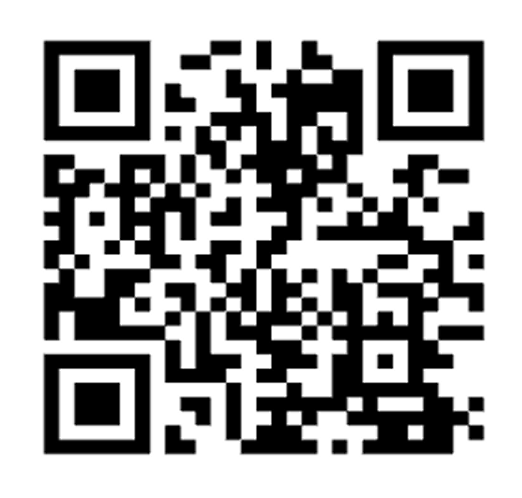




.png)
